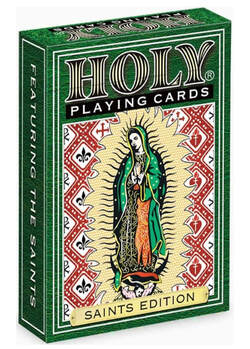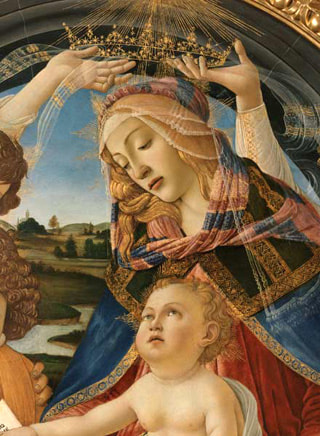Man Card Temporarily
Revoked

The Resurrection of the Dead
12But if it is preached that Christ has been raised from the dead, how can some of you say that there is no resurrection of the dead? 13 If there isno resurrection of the dead, then not even Christ has been raised. 14And if Christ has not been raised, our preaching is worthless, and so is your faith.…
Berean Standard Bible · Download
1 Corinthians 15:12
But if it is preached that Christ has been raised from the dead, how can some of you say that there is no resurrection of the dead?
1 Corinthians 15:14
And if Christ has not been raised, our preaching is worthless, and so is your faith.
Treasury of ScriptureBut if there be no resurrection of the dead,
then is Christ not risen:
1 Corinthians 15:20
But now is Christ risen from the dead, and become the firstfruits of them that slept.
John 11:25,26
Jesus said unto her, I am the resurrection, and the life: he that believeth in me, though he were dead, yet shall he live: …
Acts 23:8
For the Sadducees say that there is no resurrection,
neither angel, nor spirit: but the Pharisees confess both.
Jump to Previous
Christ Dead Life Persons RaisedResurrection Risen Rising
Jump to Next
Christ Dead Life Persons RaisedResurrection Risen Rising
1 Corinthians 15
1. By Christ's resurrection,
12. he proves the necessity of our resurrection,
16. against all such as deny the resurrection of the body.
21. The fruit,
35. and the manner thereof;
51. and of the resurrection of those who shall be found alive at the last day.
What does Psalm 8:6 mean?
When God created Adam and Eve, He crowned them to be co–regents with him over creation (Genesis 1:26–27). He told them to "Be fruitful and multiply and fill the earth and subdue it, and have dominion over the fish of the sea and over the birds of the heavens and over every living thing that moves on the earth" (Genesis 1:28). However, Adam and Eve failed to carry out this assignment. They yielded to temptation and sinned against the Creator (Genesis 3:6–7).
It remains for the last Adam, the Lord Jesus Christ, to bring the earth under His control (1 Corinthians 15:45–47). He will do this upon His return to earth. Isaiah 9:6–7 prophesies about Jesus' reign on earth by stating: "For to us a child is born, to us a son is given; and the government shall be upon his shoulder…Of the increase of his government and of peace there will be no end, on the throne of David and over his kingdom, to establish and to uphold it." First Corinthians 15:27 states, "For 'God has put all things in subjection under his [Jesus'] feet.'"
Psalm 8:3–9 parallels Genesis 2:8–15 in which God had provided abundantly for mankind and had given them dominion over all living creatures on the earth. Hebrews 2:5–9 applies this part of Psalm 8 to Jesus. He became a real human being on our behalf, and after His death for our sins, He arose from the dead and ascended to the right hand of God. Someday, He will sit upon the throne of David and hold dominion over the whole earth. What Adam lost by sinning, Jesus has restored by suffering (1 Corinthians 15:20–28).
In this psalm David reflects upon God's majesty that is displayed in the creation. The heavens declare God's glory. Against the backdrop of such glory, man seems insignificant, yet God chose man to rule the earth and all its creatures. By giving man this awesome responsibility, God has crowned him with glory and honor. The psalm has a messianic tone, because Jesus Christ became a little lower than the angels by becoming a human being. Someday, when Jesus rules the world, he will restore the dominion Adam lost. All nature, including all mankind, will submit to Jesus' rule. The psalm ends as it began with a declaration of the Lord's majestic name in all the earth.
n his first letter to the Corinthians, Paul emphasizes the future resurrection of believers from the dead. There were some who denied the reality of the future resurrection, and Paul defends the truth to the believers in Corinth who had been deceived by that false teaching. Paul explains that the resurrection of believers in Christ is assured because Jesus Christ Himself rose from the dead (1 Corinthians 15:13).
Paul then looks forward to the second coming of Christ, when He will return with the resurrected saints and at which time He will destroy “all dominion, authority and power. For he must reign until he has put all his enemies under his feet. The last enemy to be destroyed is death” (1 Corinthians 15:24–26).
The enemies of God that will be destroyed include Satan, who by his deceit and lies ruined Adam and Eve and all humanity after them. All human beings inherit the sin nature from Adam (Romans 5:12), and all must live in bondage to sin unless delivered by Christ from their sinful state. Satan destroyed the innocence of Adam and Eve when he tempted them to rebel against God. But Jesus, who has redeemed the elect, will have the final victory over Satan and his demons when they are destroyed forever (Revelation 20:1–10).
Another enemy to be destroyed is sin, which all human beings are guilty of committing. On the cross, Jesus saved His people from the punishment and the power of sin. Believers need no longer fear God’s wrath against their sin because Jesus took the punishment sinners deserve. He also delivered believers from the power of sin, granting us the ability to resist sin through the power of the Holy Spirit who dwells within and whose power is greater than the power of sin. One day, sin will be completely destroyed, and believers will no longer live in the presence of sin. The apostle John describes the New Jerusalem, which will come down from heaven and be entirely free from sin: “Nothing impure will ever enter it, nor will anyone who does what is shameful or deceitful, but only those whose names are written in the Lamb’s book of life” (Revelation 21:27).
First Corinthians 15:26 says that the last enemy to be destroyed is death. Death will be the last of all, because it is the “wages of sin” (Romans 6:23) and must continue to exist until sin has come to an end. Death was the last of the enemies to come, and it will be the last to be destroyed. How will this happen? Those who are in Christ will be raised to eternal life in the presence of God and will die no more. Even unbelievers will live eternally in the lake of fire, and there will be no more physical death for them (Mark 9:48). Physical death is the last enemy to be destroyed, both for the righteous and the wicked.
The defeat of death by the God of life proves the doctrine of the resurrection of the dead. Death can only be destroyed by the resurrection of both the wicked and the righteous, who will die no more. If there is no resurrection, then death will still rule and people will be subject to it. The fact that death will be destroyed assures us of the resurrection. “When the perishable has been clothed with the imperishable, and the mortal with immortality, then the saying that is written will come true: ‘Death has been swallowed up in victory’” (1 Corinthians 15:54; cf. Isaiah 25:8).
In Revelation
chapter 12,
John sees a vision of a woman
"clothed with the sun,
and the moon under her feet,
and on her
head a crown of twelve stars"
(Revelation 12:1).
Note the similarity between this description and the description that Joseph gave of his father Jacob (Israel) and his mother and their children (Genesis 37:9-11). The twelve stars refer to the twelve tribes of Israel.
So the woman in Revelation 12 is Israel.
Additional evidence for this interpretation is that Revelation 12:2-5
speaks of the woman being with child and giving birth. While it is true that Mary gave birth to Jesus, it is also true that Jesus, the son of David from the tribe of Judah, came from Israel. In a sense, Israel gave birth—or brought forth—Christ Jesus. Verse 5 says that the woman’s child was "a male child, who is to rule all the nations with a rod of iron; and her child was caught up to God and to His throne." Clearly, this is describing Jesus. Jesus ascended to heaven (Acts 1:9-11) and will one day establish His kingdom on earth (Revelation 20:4-6), and He will rule it with perfect judgment
(the “rod of iron”; see Psalm 2:7-9).
Jesse in the Bible is father of David and thus an important part of the lineage of Christ, the Son of David (Matthew 22:42). We don’t know much about Jesse as a person; most of the Bible’s references to Jesse come in the context of his relation to his famous son David.
In order to understand the rich history surrounding the name of Jesse, one might begin by tracing his lineage back to Abraham. God chose Abraham and promised that through his seed all the nations of the world would be blessed (Genesis 22:16–18). Jumping forward several generations, we are introduced to Boaz, a wealthy and God-fearing resident of Bethlehem. Boaz demonstrates God’s redemptive character by wedding himself to Ruth the Moabitess, who forsook her ungodly heritage (see Numbers 25:1–5) and clung to the God of Israel (Ruth 1:16).
The book of Ruth is an incredible story of God’s salvific nature. By faith Ruth is welcomed into the fellowship of God’s covenant people, Israel. After her marriage to Boaz, Ruth gives birth to Obed (Ruth 4:13), and the Bethlehemite women rejoice in the blessing of God over her family (verses 14–15). Boaz and Ruth’s son Obed later begets Jesse, who becomes the father of David (verse 22), God’s choice for king for Israel (1 Samuel 16:1). Thus Ruth was granted a place of honor as the great-grandmother of David, who was a type of and faithful predecessor to the Christ-King
Jesse takes the stage with his eight sons in 1 Samuel 16–17. The prophet Samuel invites Jesse and his family to a sacrificial feast, but Jesse only brings his seven oldest sons, including Eliab, Abinadab, and Shammah; all seven were rejected by God as king (1 Samuel 16:6–10). Jesse had chosen to leave David, his youngest son, to tend the sheep. However, it is this lowly shepherd boy whom, to the probable surprise of both Jesse and Samuel, God directs Samuel to anoint as the chosen king (1 Samuel 16:11–13). Although it is David’s kingship that typifies and anticipates the reign of the Christ-King, Jesse’s name still receives mention in a couple prophecies of the Messiah.
In Isaiah, Jesse is mentioned as the stump from which a Branch (Christ) would come forth to be a banner for all peoples; to this banner all nations would rally (Isaiah 11:1–3, 10; cf. Jeremiah 23:5). Furthermore, Micah 5:2identifies Bethlehem—the little town of Jesse—as the source of the King of all kings. The Branch from the root of Jesse would eventually spring forth and bear everlasting fruit.
The New Testament begins with these words: “This is the genealogy of Jesus the Messiah the son of David, the son of Abraham” (Matthew 1:1). From God’s promise to Abraham and all the way to God’s promised Messiah, our vision of God’s universal program of salvation expands as new narratives bring fuller color and understanding. Jesus’ genealogy in Matthew references not only Israelites but also Gentiles, including Rahab, the God-fearing mother of Boaz and former prostitute from Jericho (Joshua 2:1–21), and Ruth the Moabitess, grandmother of Jesse. From this mixed (Jew and Gentile) clan, Christ came to be the banner not just for the people of Israel but for peoples of all nations (Romans 15:7–13). Jesus was not the beginning of a message of salvation for all but the climactic expression and extension of the salvation God had already extended to all who believe.
Who is Jesse? Although a relatively minor character in the biblical drama, Jesse shares in a rich lineage essential to God’s plan of redemption for all nations. May Jesse’s name be to you a symbol of a grander narrative, a blessed lineage, a beacon of hope for all who choose to call upon the name of the Lord, young and old, Jew and Gentile, slave and free.
God’s being “all in all” is rooted in the truth of Jesus’ resurrection and the resultant future, when Christ returns and “the Son himself will be made subject to him who put everything under him, so that God may be all in all” (1 Corinthians 15:28).
Paul begins 1 Corinthians 15 by discussing the gospel message, namely, that Jesus died, was buried, rose from the dead, and appeared to many witnesses (1 Corinthians 15:1–11). Some of the Corinthians had been claiming the resurrection was a false doctrine (1 Corinthians 15:12). Paul counters that the resurrection of Jesus and of those who believe in the gospel is crucial for the present process of becoming holy and the Christian’s future glorification. As Paul states in 1 Corinthians 15:17–19, if the resurrection of Jesus is a false reality, the Christian’s future resurrection is not a reality. Without the resurrection of Christ, the Christian is “of all men most to be pitied.”
Paul makes a clear defense of the resurrection of Christ beginning in 1 Corinthians 15:20. This resurrection will lead to a future resurrection for all those who have life through faith in Him. Jesus was the first person to be raised from the dead, never to die again. His is an eternal resurrection. As Jesus has led the way, other events will follow: believers who have died before Jesus’ second coming will be resurrected when He comes (1 Corinthians 15:23), and those still living will be made incorruptible (1 Corinthians 15:50–58; cf. 1 Thessalonians 4:13–17).
After Jesus comes again, He will bind Satan, set up an earthly kingdom, and physically rule for 1,000 years (Revelation 20:1–6). At the end of that time, Satan will be released from imprisonment, and Satan and his followers will rebel and be destroyed (Revelation 20:5–10). Jesus will then give authority back to the Father, and He Himself will be in subjection to the Father. It’s based on these truths that Paul claims, “God may be all in all.” Ultimately, all in all is an expression of the rightful authority that God possesses. In the future, when evil has been eradicated forever, God will reign as the unchallenged Supreme over all the universe. He will be the one and only Ruler of all hearts and lives and the only desire of His creatures. When God is all in all, our redemption will be fully accomplished, and God’s glory will fill all creation (cf. Psalm 72:19).
God’s being “all in all” is expressed in the NLT as being “utterly supreme over everything, everywhere.” The full context: “All who belong to Christ will be raised when he comes back. After that the end will come, when he will turn the Kingdom over to God the Father, having destroyed every ruler and authority and power. For Christ must reign until he humbles all his enemies beneath his feet. And the last enemy to be destroyed is death. For the Scriptures say, ‘God has put all things under his authority.’ . . . Then, when all things are under his authority, the Son will put himself under God’s authority, so that God, who gave his Son authority over all things, will be utterly supreme over everything everywhere” (1 Corinthians 15:23–28, NLT). The AMP depicts God as “manifesting His glory without any opposition, the supreme indwelling and controlling factor of life.”
It’s important to note that, in reality, God has always had complete authority over His creation, although, in this present world, His rule is not as evident due to the presence of His enemies. One day, all God’s enemies will be vanquished. Not even death can last (1 Corinthians 15:26).
According to 1 Corinthians 15:28, Jesus will practically continue in an eternal submission to God the Father. Ontologically, Jesus is equal with God as the Second Person of the Trinity (John 8:58). Just as God has absolute authority as Creator, Jesus has absolute authority as Creator (see Colossians 1:15–16; 3:11).
As Paul continues in 1 Corinthians 15, he shows the implications of God’s being all in all. Those who are to be resurrected need to lead holy lives, fulfilling the purpose of bringing God glory. For if the resurrection isn’t true, why not “eat and drink, for tomorrow we die” (1 Corinthians 15:32)? However, the resurrection is true—all of humanity will be resurrected by God, so “do not be misled . . . and stop sinning” (1 Corinthians 15:34).
Jesus died, was buried, and rose from the dead. He will gather His elect to Himself in the future, reign on earth, and abolish Satan and death. Upon completing these events, all enemies will be defeated. All things will be subject to God, giving all authority to God, and He will be “all in all.” In light of this future, let us obey Jesus, stop sinning, and enjoy the grace of God.
In 1 Corinthians Paul writes to address incredible immaturities among the people, and at one point he tells the church to exercise church discipline against a particular member: “Hand this man over to Satan for the destruction of the flesh, so that his spirit may be saved on the day of the Lord” (1 Corinthians 5:5; cf. 1 Timothy 1:20). This was a case of a man living with his father’s wife (1 Corinthians 5:1). Instead of mourning such a great sin, the Corinthians had become arrogant and did not remove the person from their church as they should have done (1 Corinthians 5:2).
Paul knew this kind of immoral behavior should not go unanswered. Even though Paul was not physically in Corinth, he could make a judgment on this situation (1 Corinthians 5:3). That he could make that judgment from a distance underscored the failure of the Corinthians to judge those within their midst. The judgment Paul announces is an authoritative one. He appeals to the name and power of Jesus and the unity he has with the Corinthians in spirit (1 Corinthians 5:4). Paul pronounces that this man be handed over to Satan (1 Corinthians 5:5a).
At first glance, this judgment of being handed over to Satan would seem to be so severe as to cause the offender to lose his salvation. However, Paul makes it clear that this is not the case. Paul’s purpose in handing this one to Satan is so that the offender’s flesh will be destroyed, but still his spirit will be saved in the day of the Lord (1 Corinthians 5:5b). Earlier in the letter, Paul expressed his confidence that the Corinthians would be confirmed as blameless in the day of the Lord (1 Corinthians 1:8). The day of the Lord includes the final judgments and would seem to include the bema seat judgment that Paul also mentions in 1 Corinthians 3:12–15. That judgment does not undo or change one’s position in Christ. In 1 Corinthians 5, Paul hands the offender over to Satan; while this person will have severe consequences in his flesh, the man’s spiritual position in Christ is not threatened.
Paul’s judgment in handing this man over to Satan is one of several examples in which we see that God can mete out physical consequences and judgments even if He will never undo the salvation He has provided. Ananias and Sapphira were upstanding members of the church at Jerusalem, but they lied to God and lost their lives (Acts 5:1–11). John talks about sin that can lead to death (1 John 6:16–17). Paul mentions that some believers at Corinth were sick and some had even died because they were handling the Lord’s Supper improperly (1 Corinthians 11:27–30).
The lesson the Corinthians needed to learn was that they were responsible for judging each other within the church and holding each other accountable for their deeds (1 Corinthians 5:12). They weren’t to try to assess who was saved and who wasn’t. If someone called himself a brother (in Christ), then they should treat that person as a brother (1 Corinthians 5:11—note the reference to a “so-called brother,” literally, a “named brother”). Brothers and sisters should hold each other accountable.
We ought to encourage one another to love and good deeds, as the writer of Hebrews challenges us (Hebrews 10:24). Sometimes that includes judging sin rightly and challenging each other to do better. In Paul’s case, in his apostolic authority (something we don’t have),
he commanded an offender to be handed over to Satan.
While we don’t have that authority, we can certainly still hold each other accountable, knowing the seriousness of immorality and sin.
In Genesis 3 God metes out various judgments against those who brought sin into His perfect world. Adam, Eve, and the serpent all hear of the consequences of their rebellion. To the serpent God says,
in part, “And I will put enmity between thee and the woman, and between thy seed and her seed; it shall bruise thy head, and thou shalt bruise his heel”
(Genesis 3:15, KJV).
Even in this judgment, there is mercy. God’s curse on the serpent, in particular, was laced with words of hope. The woman mentioned in Genesis 3:15 is Eve. The serpent, addressed directly, is the animal that Satan used to deceive the woman. Some of the curse was directed at the animal (verse 14); at the same time, the curse of God falls upon Satan, who had taken the serpent’s form or body in Eden (cf. the dragon in Revelation 12:9).
As part of the curse, enmity—mutual hatred and ill will—will exist between the woman and the serpent. Later, the same enmity will continue between the woman’s seed or offspring (mankind in general, since Eve is the “mother of all living,” Genesis 3:20) and the serpent’s seed. Their offspring will remain enemies throughout all generations. The serpent’s (metaphorical) offspring are demonic forces and also those people who follow the devil and accomplish his will. Jesus called the Pharisees a “brood of vipers” in Matthew 12:34 and said they belonged to their “father, the devil” in John 8:44. In short, God says that Satan will always be the enemy of mankind. It follows that people who side with Satan will be at perpetual war with God’s elect and that we are engaged in a very real battle between good and evil (Ephesians 6:12).
Genesis 3:15 is a remarkable verse, often called the protoevangelium (literally, “first gospel”), because it is the Bible’s first prediction of a Savior. The second half of the verse gives two messianic prophecies concerning that Savior:
The first messianic prophecy in Genesis 3:15 is
that “he will crush your head.”
That is, the seed of the woman will crush the serpent’s head. The Amplified Bible makes it clear that “the woman’s seed” is more than mankind in general; it is an individual representing all mankind:
“And I will put enmity (open hostility)
Between you and the woman,
And between your seed (offspring) and her Seed;
He shall [fatally] bruise your head.”
The second messianic prophecy
in Genesis 3:15 is that
“you will strike his heel.”
That is, the serpent will bite the heel
of “the woman’s seed.”
The heel-bite is set in contrast to the head-crush, as the Amplified Bible brings out: “And you shall [only] bruise His heel.”
This passage points to the promise of
Jesus’ birth, His redemption, and His victory over Satan.
The woman’s offspring is Jesus. Being virgin-born,
He is literally the offspring of a woman
(Matthew 1:25; Galatians 4:4; cf. Isaiah 7:14).
Being the Son of Man, He is the perfect representative of humankind.
The devil’s offspring were the evil men and demonic forces who, like a snake, lay in wait for the Savior and struck at Him. Their venomous conspiracy condemned Jesus to be crucified.
But the serpent’s strike did not spell the end of the Offspring of the woman.
Jesus rose the third day, breaking the power of death and winning the ultimate victory.
With the cross, Jesus “crushed” the devil’s head, defeating him forever.
So, in Genesis 3:15, the crushing of the serpent’s head was a picture of Jesus’ triumph over sin and Satan at the cross (cf. John 12:31). The striking of the Messiah’s heel was a picture of the wounding and death of Jesus on the cross. Satan bruised Jesus’ “heel,” but Jesus showed complete dominance over Satan by bruising his “head.”
Satan, although still active in this world, is a defeated foe. His doom is sure: “And the devil . . . was thrown into the lake of burning sulfur” (Revelation 20:10). Until that time, there remains enmity between Satan and God’s children.
The protoevangelium shows us that God always had the plan of salvation in mind and informed us of His plan as soon as sin entered the world. Satan formulated a plan involving the serpent in Eden, but God was way ahead of him, having already ordained the Serpent-crusher.
Jesus Christ perfectly fulfilled God’s mission:
“The reason the Son of God appeared was to destroy the devil’s work”
(1 John 3:8).
Psalm 110:1 reads,
“Of David. A psalm. The LORD says to my lord:
‘Sit at my right hand until I make your enemies a footstool for your feet.’” But who is this “lord” the LORD speaks to? Is this meant to pertain to us?
Verses must be read in their context. Psalm 110:1 tells us that this psalm was written by David.
In it, David describes the actions of “the LORD,” which is how we render the Hebrew name of God, YHWH, into English.
YHWH, or Yahweh, then speaks to “my lord”(Hebrew Adonai), telling this person, this Adonai, to sit at His right hand.
This same person has a worldwide rule (Psalm 110:6) and is called
“a priest forever, in the order of Melchizedek” (verse 4).
David says that Yahweh tells this king and priest whom
David calls “my lord” to sit at His right hand.
It is important to note that the Lord does not tell David to sit at His right hand; this place is reserved for another.
This person, who isn’t David, is someone whom David as king still considers
“Adonai,”
an address of honor for someone more notable than the speaker.
Who, besides Yahweh, would be more notable than the king?
Jesus claims this title for Himself.
The New Testament records Jesus’ references to this passage in multiple places (Matthew 22:44; Mark 12:35–37; Luke 20:42–43). In each passage, Jesus proves that the Messiah, the Christ, is David’s Lord and the One who will sit at Yahweh’s right hand.
The Lord God Almighty, then, will put all of Jesus’ enemies under Jesus’ feet. Hebrews 1, while establishing Jesus’ superiority over the angels, says, “To which of the angels did God ever say, ‘Sit at my right hand until I make your enemies a footstool for your feet’?” (Hebrews 1:13).
Psalm 110 predicts the victory of Jesus Christ over all His enemies and the glory He will receive. The apostle John caught a glimpse of this victory, and he wrote, “Then I saw heaven standing open, and there before me was a white horse. And its rider is called Faithful and True. With righteousness He judges and wages war. He has eyes like blazing fire, and many royal crowns on His head. . . . He is dressed in a robe dipped in blood, and His name is The Word of God. . . . And from His mouth proceeds a sharp sword with which to strike down the nations, and He will rule them with an iron scepter. He treads the winepress of the fury of the wrath of God the Almighty” (Revelation 19:11–15). Any victory we attain and any glory we share will be the result of our being in Christ.
Since the promise of Psalm 110 is not for us, we must look
at how we as believers are to relate to our enemies:
In Luke 6:27–28, Jesus says, “Love your enemies, do good to those who hate you, bless those who curse you, pray for those who mistreat you.”
Romans 12:19 adds, “Do not take revenge, my dear friends,
but leave room for God’s wrath,
for it is written: ‘It is mine to avenge;
I will repay,’ says the Lord.”
We are promised to overcome, by faith (1 John 5:4).
The punishment of our enemies
will come in God’s time and in God’s way.
Anyone who sins is ultimately sinning against God,
and the enemies of God
will be placed under the feet of Jesus.
The sons of Korah knew where their victory came from:
”You are my King and my God,
who decrees victories for Jacob.
Through you we push back our enemies;
through your name we trample our foes.
I put no trust in my bow,
my sword does not bring me victory;
but you give us victory over our enemies,
you put our adversaries to shame.
In God we make our boast all day long,
and we will praise your name forever”
(Psalm 44:4–6).
Jesus, in response to the Pharisees’ question
“Who do you think you are?”
said, “‘Your father Abraham rejoiced at the thought of seeing my day;
he saw it and was glad.’ ‘You are not yet fifty years old,’
the Jews said to him, ‘and you have seen Abraham!’
‘I tell you the truth,’
Jesus answered, ‘before Abraham was born, I am!’
At this, they picked up stones to stone him, but
Jesus hid himself,
slipping away from the temple grounds”
(John 8:56–59).
The violent response of the Jews to Jesus
’ “I AM”
statement indicates they clearly understood what He was declaring--
that He was the eternal God incarnate.
Jesus was equating Himself
with the "I AM" title
God gave Himself
in Exodus 3:14.







 RSS Feed
RSS Feed
























































